The world is full of problems and conflicts. So why can we not solve them? According to Edward de Bono, current thinking cannot solve world problems because current thinking is itself the problem. And this is getting worse: we are so accustomed to readily available information online that we search immediately for the answers rather than thinking about them. Our minds function like trying to drive a car using only one wheel. There’s nothing wrong with that one wheel—conventional thinking—but we could all get a lot further if we used all four. De Bono examines why we think the way we do from a historical perspective and uses some of his famous thinking techniques combined with new ideas to show us how to change the way we think. If we strengthen our ability and raise our thinking level, other areas of our life—both personal and business success—will improve. De Bono is the master of the original big “concept” book and his enticement to us to use our minds as constructively as possible should appeal to a whole new generation of fans.
- You cannot add that amount to the cart — we have 1 in stock and you already have 1 in your cart. View cart
Think!: Before It’s Too Late
KSh 1,290.00
The world is full of problems and conflicts. So why can we not solve them? According to Edward de Bono, current thinking cannot solve world problems because current thinking is itself the problem. And this is getting worse: we are so accustomed to readily available information online that we search immediately for the answers rather than thinking about them. Our minds function like trying to drive a car using only one wheel. There’s nothing wrong with that one wheel—conventional thinking—but we could all get a lot further if we used all four. De Bono examines why we think the way we do from a historical perspective and uses some of his famous thinking techniques combined with new ideas to show us how to change the way we think. If we strengthen our ability and raise our thinking level, other areas of our life—both personal and business success—will improve. De Bono is the master of the original big “concept” book and his enticement to us to use our minds as constructively as possible should appeal to a whole new generation of fans.
1 in stock
Related products
-
Become an effective leader [Apr 02, 2018] Carnegie, Dale
KSh 1,495.00Balancing the skills between leadership and management should be the focus if you aspire to succeed in your job and progress in your career. Learn how you can identify and leverage your leadership style to be the best you can be, in order to get the best results for yourself and your organization.
-
The 8th Habit: From Effectiveness to Greatness (The Covey Habits Series) Paperback
KSh 1,695.00In the more than twenty-five years since its publication, The 7 Habits of Highly Effective People has become an international phenomenon with more than twenty-five million copies sold. Tens of millions of people in business, government, and schools have dramatically improved their lives and organizations by applying the principles of Stephen R. Covey’s classic book.
The world, however, is a vastly changed place. Being effective as individuals and organizations is no longer merely an option—it’s a requirement for survival. But in order to thrive, innovate, excel, and lead in what Covey calls the “New Knowledge Worker Age,” we must build on and move beyond effectiveness. In this era of human history, our call is for greatness—holistic fulfillment, passionate execution, and significant contribution.
Accessing the higher levels of human genius in today’s new reality requires a change in thinking: a new mindset and a new skill-set—in short, a new habit. The crucial challenge of our world today is this: to find our voice and inspire others to find theirs. It is what Covey calls the 8th Habit. The 8th Habit is the answer to the soul’s yearning for greatness, the organization’s imperative for significance and superior results, and humanity’s search for its “voice.”
Covey’s books have transformed the way we think about ourselves, our purpose in life, our organizations, and about humankind. Just as The 7 Habits of Highly Effective People helped us focus on effectiveness, The 8th Habit shows us the
-
100 Things Successful People Do
KSh 2,195.00100 Things Successful People Do is packed with great ideas for working smart and living well, all carefully chosen to help you achieve any kind of success you can imagine. You will discover the habits that are common to successful people and find out how to use them in your own life.
Every chapter features a new idea that will help you get closer to your goals. Mixing simple descriptions with activities and exercises, you will learn the optimal mindset and habits you need to succeed in work and life.
-
What I Wish I Knew When I Was 20: A Crash Course on Making Your Place in the World Paperback
KSh 650.00Inspiring readers all over the globe to reimagine their future, this revised and updated edition of What I Wish I Knew When I Was 20 features new material to complement the classic text.
Major life transitions such as leaving the protected environment of school or starting a new career can be daunting. It is scary to face a wall of choices, knowing that no one is going to tell us if we make the right decision. There is no clearly delineated path or recipe for success. Even figuring out how and where to start can be a challenge.
As head of the Stanford Technology Ventures Program, Tina Seelig’s job is to guide her students as they make the difficult transition from the academic environment to the professional world—providing tangible skills and insights that will last a lifetime. Seelig is a wildly popular and award-winning teacher and in What I Wish I Knew When I Was 20 she shares with us what she offers her students –provocative stories, inspiring advice, and a big dose of humility and humor.
These pages are filled with captivating examples, from the classroom to the boardroom, of individuals defying expectations, challenging assumptions, and achieving unprecedented success. Seelig throws out the old rules and provides a new model for reaching our potential. We discover how to have a healthy disregard for the impossible; how to recover from failure; and how most problems are remarkable opportunities in disguise.
-
Blink-Malcom Gladwell
KSh 1,295.00Best-selling author Gladwell (The Tipping Point) has a dazzling ability to find commonality in disparate fields of study. As he displays again in this entertaining and illuminating look at how we make snap judgments-about people’s intentions, the authenticity of a work of art, even military strategy-he can parse for general readers the intricacies of fascinating but little-known fields like professional food tasting (why does Coke taste different from Pepsi?). Gladwell’s conclusion, after studying how people make instant decisions in a wide range of fields from psychology to police work, is that we can make better instant judgments by training our mind and senses to focus on the most relevant facts-and that less input (as long as it’s the right input) is better than more. Perhaps the most stunning example he gives of this counterintuitive truth is the most expensive war game ever conducted by the Pentagon, in which a wily marine officer, playing “a rogue military commander” in the Persian Gulf and unencumbered by hierarchy, bureaucracy and too much technology, humiliated American forces whose chiefs were bogged down in matrixes, systems for decision making and information overload. But if one sets aside Gladwell’s dazzle, some questions and apparent inconsistencies emerge. If doctors are given an algorithm, or formula, in which only four facts are needed to determine if a patient is having a heart attack, is that really educating the doctor’s decision-making ability-or is it taking the decision out of the doctor’s hands altogether and handing it over to the algorithm? Still, each case study is satisfying, and Gladwell imparts his own evident pleasure in delving into a wide range of fields and seeking an underlying truth. -
Atomic Habits: the life-changing million
KSh 2,495.00People think that when you want to change your life, you need to think big. But world-renowned habits expert James Clear has discovered another way. He knows that real change comes from the compound effect of hundreds of small decisions: doing two push-ups a day, waking up five minutes early, or holding a single short phone call.
He calls them atomic habits.
In this ground-breaking book, Clears reveals exactly how these minuscule changes can grow into such life-altering outcomes. He uncovers a handful of simple life hacks (the forgotten art of Habit Stacking, the unexpected power of the Two Minute Rule, or the trick to entering the Goldilocks Zone), and delves into cutting-edge psychology and neuroscience to explain why they matter. Along the way, he tells inspiring stories of Olympic gold medalists, leading CEOs, and distinguished scientists who have used the science of tiny habits to stay productive, motivated, and happy.
These small changes will have a revolutionary effect on your career, your relationships, and your life.
________________________________
A NEW YORK TIMES AND SUNDAY TIMES BESTSELLER‘A supremely practical and useful book.’ Mark Manson, author of The Subtle Art of Not Giving A F*ck
‘James Clear has spent years honing the art and studying the science of habits. This engaging, hands-on book is the guide you need to break bad routines and make good ones.’ Adam Grant, author of Originals
‘Atomic Habits is a step-by-step manual for changing routines.‘ Books of the Month, Financial Times
‘A special book that will change how you approach your day and live your life.’ Ryan Holiday, author of The Obstacle is the Way
-
The Dichotomy of Leadership: Balancing the Challenges of Extreme Ownership to Lead and Win – Hardcover
KSh 2,995.00THE DICHOTOMY OF LEADERSHIP, Jocko and Leif dive even deeper into the unchartered and complex waters of a concept first introduced in Extreme Ownership: finding balance between the opposing forces that pull every leader in different directions. Here, Willink and Babin get granular into the nuances that every successful leader must navigate.
Mastering the Dichotomy of Leadership requires understanding when to lead and when to follow; when to aggressively maneuver and when to pause and let things develop; when to detach and let the team run and when to dive into the details and micromanage. In addition, every leader must:
· Take Extreme Ownership of everything that impacts their mission, yet utilize Decentralize Command by giving ownership to their team.
· Care deeply about their people and their individual success and livelihoods, yet look out for the good of the overall team and above all accomplish the strategic mission.
· Exhibit the most important quality in a leader―humility, but also be willing to speak up and push back against questionable decisions that could hurt the team and the mission.With examples from the authors’ combat and training experiences in the SEAL teams, and then a demonstration of how each lesson applies to the business world, Willink and Babin clearly explain THE DICHOTOMY OF LEADERSHIP―skills that are mission-critical for any leader and any team to achieve their ultimate goal: VICTORY.
-
THE POWER OF SELF IMAGE
KSh 1,000.00Do you ever wake up, stand in front of the mirror and loathe the man or woman you see?
Do you want to change and transform your life?
Are you feeling that you could be happier, healthier and wealthier?Are you satisfied with how you feel about yourself?
Do you present yourself with confidence and courage when you have right opportunities?
Are you in total control of your life or happy with how you look and relate with others?
Do you feel that there is something better beside what you have and you want to feel great?This Motivational and Personal Development Book is a must read if you are to set out on your journey of self-discovery.
” The Power Of Self Image” book will open your eyes to this best kept secret for successful people and companies: One’s success, happiness, health and wealth are equivalent to his or her SELF IMAGE. It will also shift your mindset to the reality: We don’t have a relationship, financial, mental, emotional or spiritual problem; it all boils down to poor self image. And if you don’t believe in you, Bonnie will tell you why: You are NOT too young or too old to change or transform your self image.
Just like the most successful companies succeed because of their Corporate Image, likewise people succeeds because of their Strong Self Image. Between a successful person and a failure their difference lies in their SELF IMAGE. Your FIRST IMPRESSION is the LAST IMPRESSION. No one gives you a second chance when you present yourself. All successful deals, relationships and trust are built by the first impression. Your SELF IMAGE is the only key to success in your life.

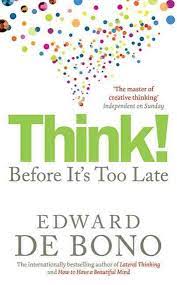
![Become an effective leader [Apr 02, 2018] Carnegie, Dale](https://booksaves.com/shop/wp-content/uploads/2023/10/download-60-150x233.jpg)
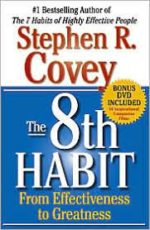
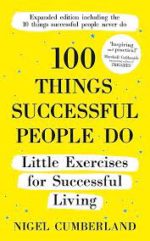
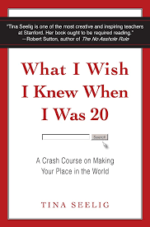
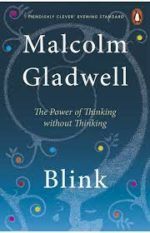
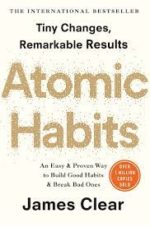
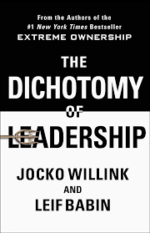
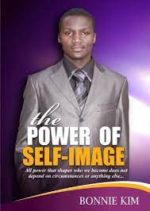
Be the first to review “Think!: Before It’s Too Late”